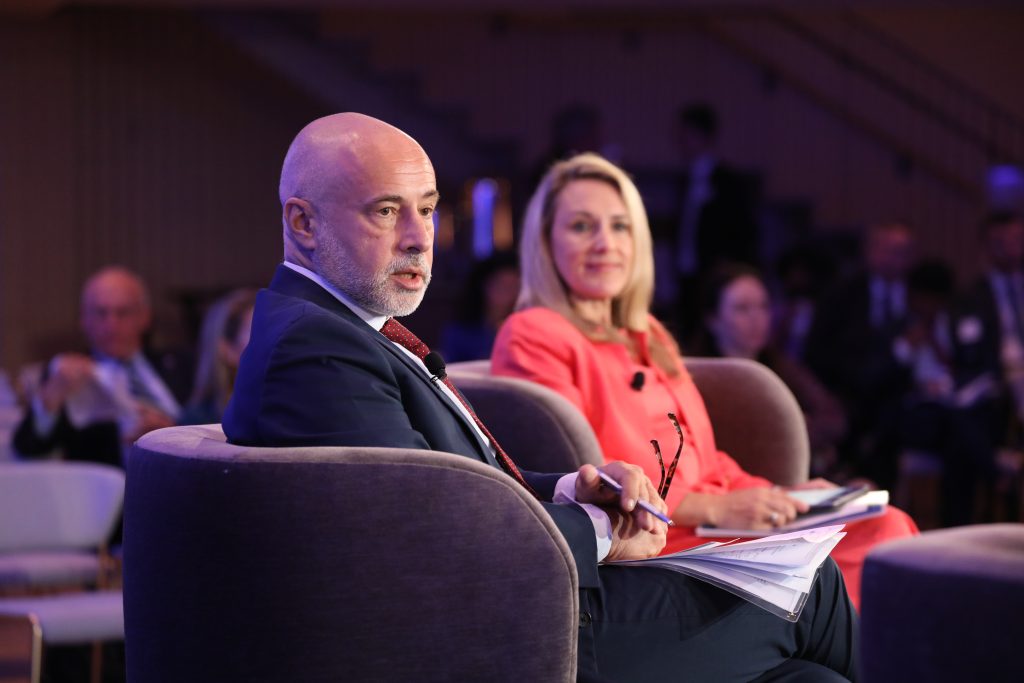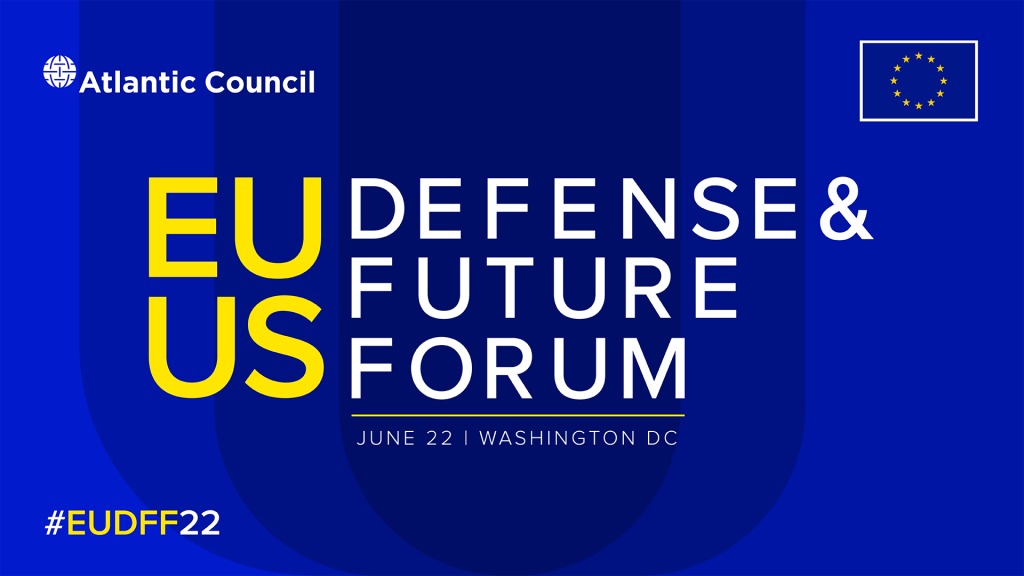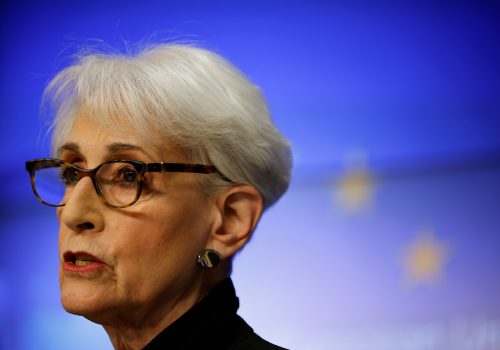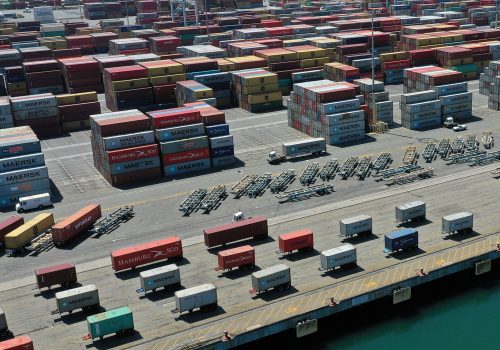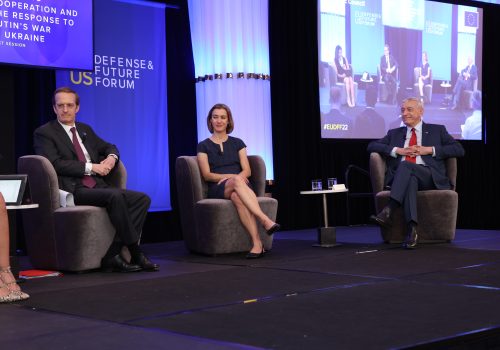Watch the full event
The first eighteen months of the Biden administration have seen a fundamental shift in coordination between the United States and Europe when it comes to Indo-Pacific policy. Speaking at Wednesday’s EU-US Defense & Future Forum, Camille Dawson, deputy assistant secretary in the US State Department’s Bureau of East Asian and Pacific Affairs, and Gabriele Visentin, the European Union (EU) special envoy for the Indo-Pacific, both cited a new consultation process between high-level officials at the State Department and European External Action Service. Visentin described this degree of cooperation as “remarkable.”
Both sides discussed the aims of their respective Indo-Pacific strategies. For Dawson, the strategy is about building a shared understanding with allies and partners about how the region can prosper and be secure. Visentin stressed that the EU’s strategy is not to confront China but to build a strategy for the region. For the EU, he said, with 40 percent of its trade linked to the region and 1.2 million European citizens present, a free and open Indo-Pacific matters a great deal. When pressed by moderator Demetri Sevastopulo of the Financial Times as to what would happen next, Dawson said she believed the strategy would lead to fewer coercive actions by China.
Both sides agreed that Pacific Islands are a rising priority and that climate change is an existential issue for them. Dawson said the United States is listening and trying to hear what Pacific Island nations want. Beyond the Pacific Islands, she added, the United States is also trying to help on climate change and COVID-19 recovery alongside other countries that are facing coercive actions from China.
Vistentin said geopolitics in the Indo-Pacific can be seen through a pre- and post-Ukraine lens. He argued that the united front among allies that emerged after Russia’s attack on Ukraine is based on the United Nations (UN) Charter and the multinational order—and the allies have established a high price for any violation of this order. For Visentin, the post-Ukraine environment has made some geopolitical effects easier to manage and some worse. He pointed out that there had been a “swing to us” in the UN General Assembly among Indo-Pacific states since the war began. As for the United States, Dawson said she hopes China is taking the right lessons from Ukraine. She stressed that there is no understanding that the EU handles one region while the United States does another. Dawson pointed to a growing regional convergence with the United States as a sign that states are joining up with the EU and United States to resist pressure and coercive behavior from China.
Sevastopulo stressed a growing sense he felt in the region that the United States and China are on a “collision course” over Taiwan. When it comes to Taiwan, the EU is providing security as it does to a wide range of countries, according to Vistentin. And it’s noteworthy, he added, how the EU has emerged as a defense actor as it has sent substantial funds to Ukraine during the conflict.
Ben Judah is a senior fellow at the Atlantic Council’s Europe Center.
Watch the full event
Further reading
Wed, Jun 22, 2022
Wendy Sherman and Stefano Sannino on Ukrainian EU membership, Russian escalation, and Chinese technology
Transcript By
US Deputy Secretary of State Sherman and European External Action Service Secretary-General Sannino joined the Atlantic Council to talk about the transatlantic relationship and the roles of the European Union and United States in addressing the world's challenges.
Thu, Jun 23, 2022
Can the EU and US align in response to economic upheaval?
Event Recap By Damir Marusic
The global economy has been transformed by two massive shocks. Experts at the Atlantic Council's EU-US Defense & Future Forum talk about approaching the uncertain future ahead.
Thu, Jun 23, 2022
‘Strategic autonomy is strategic responsibility.’ How the war in Ukraine reshaped transatlantic security debates.
Event Recap By Damir Marusic
Russia’s attack on Ukraine has rewired the debate around transatlantic security. Transatlantic leaders at the Atlantic Council's EU-US Defense & Future Forum discussed what has—and hasn’t—changed in the last four months.
Image: Gabriele Visentin (L), the European Union (EU) special envoy for the Indo-Pacific, and Camille Dawson, deputy assistant secretary in the US State Department’s Bureau of East Asian and Pacific Affairs, speak at the Atlantic Council's EU-US Defense & Future Forum in Washington on Wednesday, June 22, 2022.
